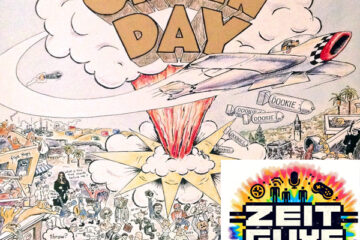Suppression of the Rebellious Spirit by Nathanael Emmons (1800)
OBEDIENCE TO CIVIL MAGISTRATES part 6
The present appearance of a seditious and rebellious spirit in this happy country is extremely alarming. This spirit has often appeared in the world and produced the most fatal effects. When the spies returned from searching the land of promise, a spirit of rebellion broke out in the camp of Israel. And though Moses and Aaron, on that occasion, fell on their faces before all the assembly of the congregation of the children of Israel; and Joshua the son of Nun, and Caleb the son of Jephunneh, employed the whole force of their eloquence to persuade the deluded and infatuated rebels to go forward and take possession of the land of Canaan; yet they absolutely refused to obey the authority of their wise and faithful rulers. This was highly displeasing to God, who doomed them to wander and perish in the wilderness; while he safely conducted the dutiful and obedient to a land flowing with milk and honey.
The last time Jerusalem was besieged, a spirit of sedition proved fatal to the city and to millions of its deluded inhabitants. The French were happy in their new-modelled government until a spirit of rebellion broke out and destroyed their monarch, their nobility, their clergy, and their wisest and best citizens. Switzerland, which lately contained a number of rich, flourishing, United States, is now groaning under the fatal effects of a seditious and rebellious spirit. The same spirit has once and again disturbed the peace of America. At the close of the last war a spirit of opposition to the commutation act appeared in Connecticut but was easily and happily nipped in the bud. Sometime after, a levelling spirit prevailed in this Commonwealth, and produced a formidable insurrection against the courts of justice, which it required a military force to suppress. Since the establishment of our present general government, some of its enemies at the southward took up arms, and violently opposed the collection of duties on distilled liquors.
To reduce those sons of sedition to reason and to order, was extremely troublesome and expensive to the public. And this year the same turbulent and rebellious spirit has appeared again and rendered it necessary to call forth an armed force against the opposers of government. The present appearance, therefore, is truly alarming. Though but small numbers have yet openly and violently opposed the laws of the land, yet the leaven of rebellion has evidently poisoned the minds of many in various parts of the Union. It is yet unknown what the effect of will be either lenient or severe measures towards those who are now in the hands of public justice. The people feel deeply interested in the fate of disorganizers and insurgents. This, however, is certain, that unless a spirit of sedition can be effectually suppressed, and a spirit of subordination effectually established, there can be no peace nor safety to these United States. A very wise and experienced ruler has said, “Rebellion is as the sin of witchcraft.” It is not only very contagious, but extremely infatuating. It deprives men of all sober reasoning and reflection.
This is demonstrated by the effects which it has already produced amongst us. Some very honest and, in other respects, very judicious people have already become deaf and blind. They cannot sec the increasing light thrown upon the dark designs of France, nor hear the voice of the most wise and enlightened statesmen. This presages a rapid progress of the present spirit of infatuation. And should this continue and increase, it will naturally produce one or the other of these deplorable effects. It will either bring on a general civil war, and reduce us to the dreadful system of liberty and equality; or it will render it absolutely necessary to tighten the reins of government, and lay stronger restraints upon the tongues, the pens, the hands, and the liberties, of those who are now complaining of our free government and its wise and gentle administration.
We may all be satisfied that our general government will never be altered for the worse, so long as we remain heartily attached to it, and will faithfully exercise our right of choosing upright and able rulers, who understand the nature and estimate the worth of our excellent constitution. But though the present prospect is, that the prevailing spirit of sedition and rebellion will be eventually suppressed; yet there is ground to fear, that if much time, great exertions, and large sums of money be employed to suppress it, the body of the people will be so irritated that they will choose to have government strengthened and their liberties abridged, rather than be perpetually exposed to the dire effects of sedition, insurrection, and rebellion. Nothing, therefore, can prevent the horrors of civil war, or the loss of our civil liberties, but the effectual suppression of that seditious spirit which refuses to be subject to principalities and powers, and to obey magistrates.
Analysis of the “Suppression of the Rebellious Spirit” by Jaden Hwang
Rebellion is a form of expression that humans have employed since the dawn of time, as it has been encoded into the essence of human nature. Nathanael Emmons was an influential theologian known for his Patriotic and Federalist disposition; he would later concoct a new religion based on these beliefs called Emmonsism. Emmonsism revolves around the concept of devotion, as deviations from the system would lead to eternal punishment by God. Emmons would delve into digressions in his most notable sermon, “Suppression of the Rebellious Spirit,” in which he describes rebellions as the sins of witchcraft. Although Emmons is an adamant believer in the sins of rebellion, he has sinned himself and others through his patriotic ways of pride.
Although Emmons may explicitly express his disdain towards the rebellious spirit, he is nothing but a hypocrite that has sinned by showing adamant faith in a country that is built on the foundation of rebellion. According to Emmons, the rebellious spirit is considered a major sin in the eyes of God, as he refers to the spies sent out by Moses to find the holy land and how God punishes them as an example of the hazards of rebellion. Emmons expresses his concern about this rebellious spirit by noting “that unless the spirit of [rebellion] can be effectually suppressed, … there can be [neither] peace or safety [in America].” In this quote, Emmons preaches about the necessity to suppress rebellions to ensure a bright future for America, which is ironic since Emmons was an ardent patriot. America was founded due to the rebels of the slave countries of North America from the oppressive mother country, England.
Since the foundation of America is established on a sinful core, this would imply the entirety of America is nothing but sinful in the eyes of God. Although Emmons may have been a Patriot at heart, his philosophies would destroy the very thing he loved.
Even though “Suppression of the Rebellious Spirit” intends to warn the people about the dangers of rebellions, it has instead called the beloved country of Emmons nothing but a sinful domain.
Suppression of the Rebellious Spirit by Haddon Buschmann
Suppression of the Rebellious Spirit was written by a preacher named Nathanael Emmons. He wrote this speech during the presidency of John Adams and the Alien and Sedition Acts, which were passed in 1798. These laws increased the requirements to be a citizen of the United States and gave the government authority to deport, imprison, and arrest any “aliens.” This caused many people to stand up to the law and started many rebellions across the country. Emmons wrote this speech in order to put a stop to the “seditious and rebellious spirits” that were destroying the country and “disturbing the peace of America.”
Because Emmons is a Christian pastor, he uses many references and quotes from the bible in order to encourage his listeners to stop going against the government and keep the peace. In order to threaten these rebels, he tells a story from the bible where God punished the rebels and “doomed them to wander and perish in the wilderness.” This implies that anyone who disobeys the authority will die alone, and followers of the rule will be prosperous. He also compares rebellion to “the sin of witchcraft,” and this warns people that similar to witchcraft, rebellion will push them away from God, and they are like the devil. Emmons describes how once one has been tainted with a rebellious spirit, they can no longer think straight and morally. He calls out rebels as having a mob mentality.
Emmons compares the revolts to the French Revolution on multiple occasions in the speech. However, instead of describing how the revolution helped and strengthened France, he thinks that it “destroyed their monarch, their nobility, their clergy, and their wisest and best citizens.” He did not see the advantages that the rebellion had on the representation and unification in France, and he only chose to see the negative part of it. He warns everyone that it will be necessary to “lay stronger restraints upon the tongues, the pens, the hands, and the liberties” of citizens in the United States. He is saying that the government will take away all of their freedoms, which will lead to a dictatorship. He demonstrates some hypocrisy due to the fact that the American Revolution had recently happened, and he approves of becoming a free country because he offers ways to fix the rebellions instead of wanting to return to the British monarchy.
Suppression of the Rebellious Spirit Portfolio by Sophia Gamboa
Rhetoric is using compositional techniques to persuade speaking or writing. Rhetoric comes in three different strategies, Logos, Ethos, and Pathos. Logos is a logical argument with facts and statistics. Ethos is credibility with allusions and morals. Pathos has to do with emotions and imagery. Nathanael Emmons uses these three techniques to express his point about how America connects to religion and different morals and mentalities.
Nathanael Emmons uses emotional and factual evidence to support his statement about the “rebellious spirit in this country.” Ethos and Pathos are shown when Emmons explains what happened in terms of religion because of these rebels, “And though Moses and Aaron, on that occasion, fell on their faces before all the assembly of the congregation of the children of Israel; and Joshua the son of Nun, and Caleb the son Jephunneh, employed the whole force of their eloquence to persuade the deluded and infatuated rebels to go forward and take possession of the land of Canaan.” Next, Emmons expresses how some of our country’s enemies have rebelled and been against the taxes being placed on certain imported goods, “Since the establishment of our present general government, some of its enemies at the southward took up arms, and violently opposed the collection of duties on distilled liquors.” He uses factual evidence to support this and makes his speech sound more personal by stating the word “enemies” to show how so many people were against all the money being collected under tariffs. Logos is shown later when Nathanael Emmons uses facts and alludes to the Bible stating, “Rebellion is as the sin of witchcraft.” Logos, Ethos, and Pathos were all shown to create a more persuasive argument about our country and its government. Nathanael Emmons wants his readers to fully grasp the idea of how many of these rebels owe those who were wrong a mob mentality. He states that rebellion, “deprives men of all sober reasoning” to make his readers reflect on how revolting against a government is a bad idea, even with practical reasons. Rebels who owe a mob mentality have become “deaf and blind.” They do not see any hope for their government and do not, “hear the voice of the most wise and enlightened statesmen.”
Another significant theme Emmons expressed was the idea of American Exceptionalism. American Exceptionalism was depicted as Emmons proclaims, “We may all be satisfied that our general government will never be altered for the worse, so long as we remain heartily attached to it, and will faithfully exercise our right of choosing upright and able rulers, who understand the nature and estimate the worth of our excellent constitution.” Emmons also explains that there needed to be a change that would grant our nation more rights, “it will render it absolutely necessary to tighten the reins of government, and lay stronger restraints upon the tongues, the pens, the hands, and the liberties, of those who are now complaining of our free government and its wise and gentle administration.” While these two quotes express that these rights will be granted, Emmons also makes it clear that those rights could be taken away just as easily creating a final sense of censorship throughout his ending statement.
Nathanael Emmons utilizes three methods to help make his point about how rebelling against America and its government does not follow and coincide with religion and certain mentalities known to society. Emmons uses Logos, Ethos, Pathos, and other significant themes to persuade his audience using facts, allusions, and imagery.
“Suppression of the Rebellious Spirit” Annalisa Dagnino
In 1800, Nathanael Emmons published the “Suppression of the Rebellious Spirit.” Emmons explains his concern with the appearance of a “seditious and rebellious spirit” in a “happy country.” Emmons supplies multiple examples of how rebellion ended governments that were seen as a positive influence. He uses the Bible and European countries like France to represent how rebellion and sedition caused the end of “happy” forms of government. Emmons explains his concerns of how the United States is “groaning under” the effects of a rebellious spirit. He explains that the only way to suppress the rebellious spirit is to censor the liberties of those who complain of the government.
It can be argued that the ideas of Nathanael Emmons go against the foundations of the United States and lean in an absolute direction. Emmons opinion towards crushing rebellions bring back the ideas that existed in absolute monarchies around the world. He explains rebellion to be a sin of witchcraft and only suppression of the rebellious spirit can lead to safety in the United States. Absolutist tendencies are depicted through Emmons’ ideas and control over the liberties that formed the foundation of the United States. His desire for censorship of speech and literature are the same ideas that formed the dystopian lives that occurred under oppressive and absolute rulers.
“Suppression of the Rebellious Spirit” by Nathanael Emmons goes against the ideas, the United States was created upon. It is the right of the citizens to rebel against a government that oppresses their liberties. Emmons’ desire for censorship leans towards the ideas that formulated absolute governments that suppressed the right to rebellion. His ideas against the rebellious spirits under the American government criticize the lives of rebels who fought for freedom from the oppressive rule of England. “Suppression of the Rebellious Spirit” by Nathanael Emmons provides evidence of the ideas that go against the liberties of American citizens.


